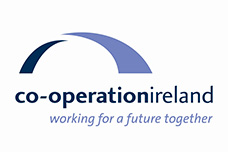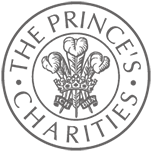Christopher Moran, Chairman of Co-operation Ireland addressed guests on the occasion of St Patrick’s Day dinner at his Crosby Moran Hall residence. His remarks focused on the approaching decade of significant commemorations in Ireland and how these offered an opportunity to promote debate and dialogue.
Secretary of State, Ambassador, Shadow Secretary of State, distinguished guests, may I offer you all a very warm welcome to this St Patrick’s Day Co-operation Ireland 2012 Celebration.
As we mark the occasion we are mindful that we do so with 70 million others around the globe who assert Irish ancestry. That has very much become the tone of the occasion, of a confident people bringing the world into their celebration and it is a warmth that people in Britain can increasingly embrace.
Reflecting upon the tradition, I looked back into the annals of history and discovered for myself that many of the seeds of our modern festival are rooted within the Protestant faith. It was in 1783 that The Knights of St Patrick organised the first parade in Dublin. Festivities would then move to Dublin Castle, the seat of British administration in Ireland, where Lord Lieutenant Earl Temple II took the step of renaming the grand banqueting room St Patrick’s Hall. It was this magnificent setting in which history will record the impact of Her Majesty’s words ‘An Uachtaran agus a’Chairde’ during her historic visit to Ireland last year.
These simple words resonated across our islands and had the effect of removing, not our history itself, but the shadow it cast over our people.
It is the dissipation of this shadow that provides the opportunity for us to examine history in a new light. In doing so, perhaps similar to my observations on the traditions of St Patrick’s Day, we will challenge our own understanding and long-held beliefs.
Fortunately we have plenty of opportunity. We are on the cusp of a period of centenary commemorations for events that together formed the most tumultuous decade within Anglo-Irish relations seen for centuries. In a few weeks’ time we will see the commemoration of the Anniversary of the Titanic. We will also, through the new £97m Visitor attraction that is Titanic Belfast, bear witness not only to its story, but celebrate the ingenuity and creativity that built Titanic and her sister ships – some of the most notable examples of Belfast’s wonderful maritime history.
In 1912, as the tectonic plates of the European empire were straining towards war, thoughts in Ireland were very much focussed on Home Rule. Almost half a million unionist men and women responded to the passing of the Third Home Rule Bill with a public pledge of defiance and mass demonstration known as the Ulster Covenant.
1916 is a year that resonates within Irish Republicanism, where the leaders of the Easter Rising read out the proclamation of the Irish Republic on the steps of the General Post Office before rebelling against the British Empire.
Only months later the volunteers of 36th Ulster Division and the Irish Rifles, both parking their differences on the issue of Home Rule, were fighting side by side on the battlefields of Northern France, most notably at the Somme. Their sacrifice should not be forgotten.
Towards the end of this decade we will mark the War of Independence and its conclusion with the Government of Ireland Act creating the modern state of Northern Ireland.
These various commemorations may stir up mixed emotions across the island of Ireland, but if handled correctly they may also open a new period of understanding and dialogue which allows people of all traditions, and none, to start a process of healing and reconciliation. The key to this is creating the space to allow each tradition to tell its story. The Irish Government, the British Government and more particularly the Northern Ireland Executive are showing tremendous leadership in opening up the debate on commemoration of these key events in a mature and dignified manner. Co-operation Ireland can play a significant role in this process, too, as encouraging people to take that fresh look and challenge their own thinking is the embodiment of what we do.
Whether it is in the narrow streets of North Belfast, or sprawling housing estates in the Creggan, we are bringing people forward, providing space for engagement, understanding and changing attitudes.
A major focus within our current work is our Youth Leadership Programme. This project is aimed at those young people in areas of significant deprivation who are at higher risk of being persuaded by the sinister hand of violence. We are embedding people within those hard-to-reach communities who have both capacity and credibility to challenge the undercurrents of sectarianism that nourish and nurture paramilitarism.
We have much do to. A report published last month by the Community Relations Council, noted that indicators of division within Northern Ireland were increasing. At the time of the signing of the Good Friday Agreement there were 22 interface barriers, today that figure stands at 48. Within social housing, 90 percent of people live in segregated communities and just six percent of pupils are educated in integrated schools.
However, we should not be despondent. In recent months we have seen great progress where, through patient engagement and dialogue, barriers separating communities are being opened for periods of time. It is our hope that these confidence-building measures would eventually lead to a permanent removal.
At Co-operation Ireland our approach is one of partnership. With delicate and patient choreography, the relationship between our then Patrons, Her Majesty The Queen and President Mary McAleese, flourished into one of genuine trust and friendship. We are confident our new Patron, President Michael D. Higgins, will develop and build on this success. The strengthening of the partnership between Prime Minister David Cameron and Taoiseach Enda Kenny can also be seen as a positive indicator for the growing relationship between the governments of the two islands.
As we move into the period of these centenaries it is clear our traditional concepts of identity will soon be open to examination and challenge. That is something with which St Patrick would be familiar, enslaved as he was from Wales, France or further afield.
In setting out to challenge and convert the pagan Irish, St Patrick must have approached his task with faith and confidence. Our task of breaking down barriers of division and creating a shared future requires the same attributes. Eli Weisel, the writer and Holocaust survivor, once wrote that ‘hope like peace is not a gift from God but a gift that we can give to one another.’
We in Co-operation Ireland are in the business of hope and, with your help, we can extend our business throughout these islands and within Ireland.
Thank you.





